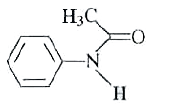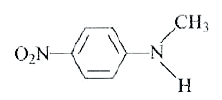Which of the following is not a Bronsted acid
NH+4
HCO−3
HCO−3
CH3COO−
The correct Answer is:D
To determine which of the following options is not a Bronsted acid, we will analyze each option based on the Bronsted-Lowry theory, which defines an acid as a species that donates a proton (H⁺) and a base as a species that accepts a proton.
1. Understanding Bronsted Acids:
- According to the Bronsted-Lowry theory, an acid is any substance that can donate a proton (H⁺). Therefore, to identify which option is not a Bronsted acid, we need to check if each option can donate a proton.
2. Analyzing Each Option:
- Option 1: NH₄⁺ (Ammonium Ion):
- When NH₄⁺ reacts with water, it donates a proton to water, forming NH₃ (ammonia) and H₃O⁺ (hydronium ion):
NH₄^+ + H₂O \rightarrow NH₃ + H₃O^+
- Since NH₄⁺ donates a proton, it is a Bronsted acid.
- Option 2: HCO₃⁻ (Bicarbonate Ion):
- When HCO₃⁻ reacts with water, it can also donate a proton, forming CO₃²⁻ (carbonate ion) and H₃O⁺:
HCO₃−+H₂O→CO₃2−+H₃O+
- Therefore, HCO₃⁻ is also a Bronsted acid.
- Option 3: CH₃COO⁻ (Acetate Ion):
- The acetate ion (CH₃COO⁻) does not have a proton to donate. It is the conjugate base of acetic acid (CH₃COOH) and cannot donate a proton:
CH₃COO− has no H⁺ to donate.
- Thus, CH₃COO⁻ is not a Bronsted acid.
- Option 4: CH₃CO⁻ (Hypothetical Ion):
- The notation CH₃CO⁻ is not standard; however, if we assume it refers to a similar structure without a proton to donate, it would also not be a Bronsted acid. But since we have already identified CH₃COO⁻ as not being a Bronsted acid, we can conclude that this option is also not a Bronsted acid.
3. Conclusion:
- The only species among the options that does not donate a proton is CH₃COO⁻. Therefore, the answer to the question "Which of the following is not a Bronsted acid?" is CH₃COO⁻.
Final Answer:
CH₃COO⁻ (Acetate Ion) is not a Bronsted acid.
- According to the Bronsted-Lowry theory, an acid is any substance that can donate a proton (H⁺). Therefore, to identify which option is not a Bronsted acid, we need to check if each option can donate a proton.
- Option 1: NH₄⁺ (Ammonium Ion):
- When NH₄⁺ reacts with water, it donates a proton to water, forming NH₃ (ammonia) and H₃O⁺ (hydronium ion):
NH₄^+ + H₂O \rightarrow NH₃ + H₃O^+
- Since NH₄⁺ donates a proton, it is a Bronsted acid.
- When HCO₃⁻ reacts with water, it can also donate a proton, forming CO₃²⁻ (carbonate ion) and H₃O⁺:
HCO₃−+H₂O→CO₃2−+H₃O+
- Therefore, HCO₃⁻ is also a Bronsted acid.
- The acetate ion (CH₃COO⁻) does not have a proton to donate. It is the conjugate base of acetic acid (CH₃COOH) and cannot donate a proton:
CH₃COO− has no H⁺ to donate.
- Thus, CH₃COO⁻ is not a Bronsted acid.
- The notation CH₃CO⁻ is not standard; however, if we assume it refers to a similar structure without a proton to donate, it would also not be a Bronsted acid. But since we have already identified CH₃COO⁻ as not being a Bronsted acid, we can conclude that this option is also not a Bronsted acid.
- The only species among the options that does not donate a proton is CH₃COO⁻. Therefore, the answer to the question "Which of the following is not a Bronsted acid?" is CH₃COO⁻.
CH₃COO⁻ (Acetate Ion) is not a Bronsted acid.
Topper's Solved these Questions
- BOOK - VMC MODULES ENGLISHCHAPTER - IONIC EQUILIBRIUMEXERCISE - LEVEL 250videos
IONIC EQUILIBRIUM
- BOOK - VMC MODULES ENGLISHCHAPTER - IONIC EQUILIBRIUMEXERCISE - LEVEL 2 NUMERICAL VALUE TYPE15videos
IONIC EQUILIBRIUM
- BOOK - VMC MODULES ENGLISHCHAPTER - IONIC EQUILIBRIUMEXERCISE - IN - CHAPTER EXERCISE - K10videos
IONIC EQUILIBRIUM
- BOOK - VMC MODULES ENGLISHCHAPTER - INTRODUCTION TO ORGANIC CHEMISTRY EXERCISE - JEE ADVANCED ARCHIVE81videos
INTRODUCTION TO ORGANIC CHEMISTRY
- BOOK - VMC MODULES ENGLISHCHAPTER - JEE MAIN - 5EXERCISE - PART II : CHEMISTRY (SECTION - 2)5videos
JEE MAIN - 5
Similar Questions
Acid base theories are important to understand the role of many substances in different reactions. Different theories are in practice which have advantages as well as limitations at their level. We always consider most convenient theory under the given conditions.
Which of the following is not Bronsted baseView SolutionWhich of the following is neither Bronsted acid nor Bronsted base?
View Solution
Knowledge Check
- Question 1 - Select One
Which of the following is strongest Bronsted base?
A B
B C
C D
D
Which of the following is a Bronsted-Lowry acid but not an Arrhenius acid?
View SolutionWhich of the following is not a mineral acid?
View SolutionWhich of the following is not a peroxy acid?
View SolutionWhich of the following is not a peroxy acid?
View SolutionWhich of the following is not a Lewis acid ?
View SolutionWhich of the following is not a Lewis acid?
View SolutionWhich of the following is the strongest acid?
View Solution

